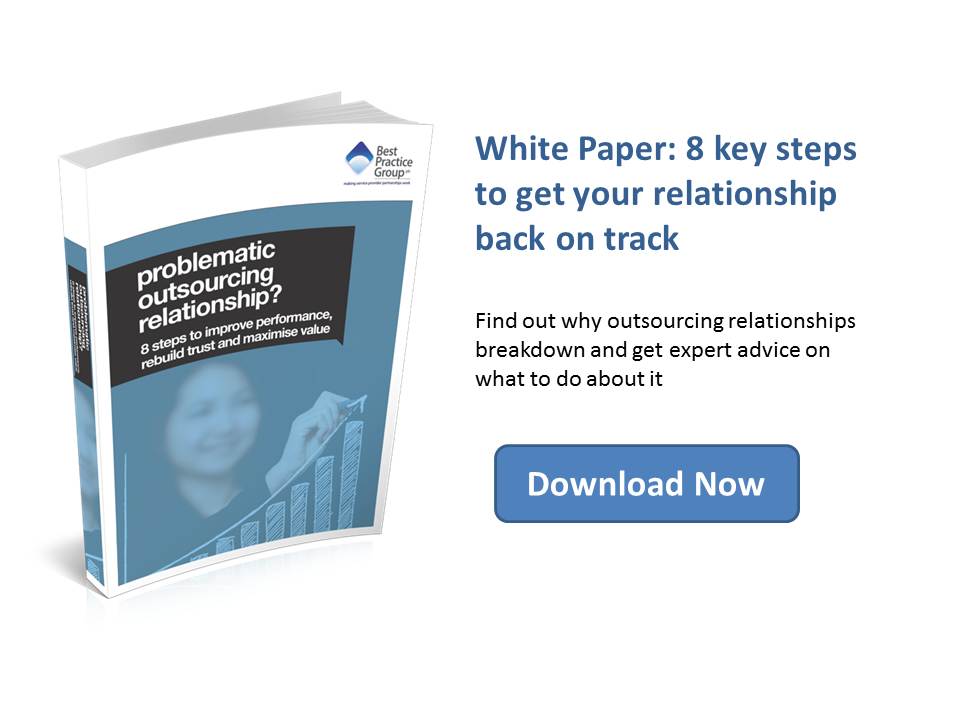 Does it matter if the average member of the public trusts the border control agency in charge of immigration into our country? What about trust in those running local GP surgeries or some of our NHS services? Then there are the prisons and criminal tagging, public transport and many more. Does trust really matter?
Does it matter if the average member of the public trusts the border control agency in charge of immigration into our country? What about trust in those running local GP surgeries or some of our NHS services? Then there are the prisons and criminal tagging, public transport and many more. Does trust really matter?
Yes, it matters a great deal, because how much the public trust public services is a significant issue, never more so than in the run up to an election. But if public trust matters why is it that not enough seems to have been done to win it?
This article looks at a new survey from WeOwnIt (an anti-privatisation campaigning organisation), that suggests 79% of us do not trust the private sector companies that supply some of our most important and high-profile public sector services, and discusses how perceptions could be realigned to achieve this.
Tens of billions of pounds a year are spent from the public purse on hundreds of outsourcing contracts with private sector businesses. These businesses are tasked with supplying services to us all at lower costs, greater efficiency or with more innovation than it is perceived could be offered by the public sector themselves.
The holistic point of outsourcing is that, in an austerity led environment, it should result in a net win for the public sector and, of course, the public at large, through better services for less money (or at least one of these two one would hope). However, with the media’s love of controversy, numerous heavily publicised legal cases, and the fickle nature of social media audiences, there seems to be a good deal of negative information out there about these same private sector organisations.
According to WeOwnIt, four of the UK’s leading outsourcing companies – Atos, Capita, Serco and G4S – account for approximately £4bn of these contracts a year. The question, however, seems to be about the public’s perception of how much they trust these household-name multi-nationals?
What the statistics have to say about trust
The survey from WeOwnIt asked just over a thousand people whether they would trust private sector businesses to run certain public services. This was the response:
- Prisons – 55.6% (no), 28.2% (yes)
- Electronic tagging of prisoners – 43.3% (no), 38.6% (yes)
- Accommodation for asylum seekers – 44.5% (no), 36.7% (yes)
- GP Services – 62% (no), 23.8% (yes)
- Emergency Services – 65.3% (no), 20.6% (yes)
- Non-Emergency Police Services – 48.6% (no), 34% (yes)
- Equipment and support services for the armed forces – 52.4% (no), 32% (yes)
- Immigration Detention Centres – 49.4% (no), 33.1% (yes)
- Court Services – 58.2% (no), 24.5% (yes)
There are a few obvious front-runners for the award of services the public trust least to be run by the private sector. These include prisons, GP surgeries, Court services and Emergency services. In fact the survey revealed that 64% of those asked distrusted outsourcing companies. In the name of fairness, it should also be pointed out that the survey revealed that central government was distrusted by just over 54%, though local government fared slightly better. Additional questions revealed overwhelming support for the public sector running these services.
More interesting statistics from the survey:
- 1% believed that there should be more competition between private sector companies for government contracts. The perception being that there is not enough competition already.
- Only 15.5% thought that there were adequate regulations currently governing private companies running public services.
- Only 18.9% agreed that outsourcing represents good value for money for taxpayers.
- 8% of those asked believed that Serco, Capita, Atos and G4S were motivated by maximising profits for their shareholders, 62.8% believed that saving money for taxpayers was not important to them.
Trust in private companies running public services is, at least in part, earned through an association with traits that you would expect from the organisations running these services – Honesty, fairness, innovation, public spirited, and reliability. Unfortunately the survey revealed a lack of belief from those asked. Taking just the four major players in the outsourcing sector that this survey has focussed on – Serco, Capita, Atos and G4S – the following are the average percentages for all four when those surveyed were asked whether they believed they had those traits:
- Honesty – 4.4%
- Fairness – 8.5%
- Innovation – 4.8%
- Public Spirited – 5.1%
- Reliability – 10.5%
Why could trust be at such a low level?
This was a limited survey, conducted by a third party. These results have not been independently verified by us. But the results do not make for positive reading. So why could it be that trust is at such a low level?
Well, as previously mentioned, there has been some controversy reported in the media about the four outsourcing companies focused on:
- Atos. This company has been reported as receiving hundreds of millions of pounds worth of work from the government that include contracts with the NHS, the Ministry of Defence and various other government offices. However in 2014 the BBC reported that Atos reached an agreement with the Government to allow them to exit their contract working on Work Capability Assessments was to come to an end early due to “significant quality failures”. The Guardian reported that “more than 600,000 appeals [had] been lodged against Atos judgements, costing the taxpayer £60m a year”. As 40% of these appeals were successful at overturning their original judgements, Disabilities Minister Mike Penning was reported as saying: “I am pleased to confirm that Atos will not receive a single penny of compensation from the taxpayer for the early termination of their contract; quite the contrary, Atos has made a substantial financial settlement to the department.”
- SErco. This outsourcing giant has been reported as receiving billions of pounds worth of contracts from the government. According to reports, many of these contracts have gone without a hitch, but the media has brought to light issues with Serco’s work at detention centres, the NHS and refugee housing. The incident most likely to affect trust was the 2013 issue over criminal tagging, which they shared the spotlight with G4S on. Questions were raised after it was allegedly discovered that they were charging for criminals that were no longer in prison, in the country or even alive. The Guardian at the time announced that “both contracts are now the subject of criminal investigation by the Serious Fraud Office (SFO)”.
- G4S. Reportedly the world’s largest security company, G4S has suffered from bad press on two memorable occasions. The first being the spotlight they shared with Serco over criminal tagging in 2013, but this was hot on the heels of arguably their most public issue – the security contract for the London 2012 Olympics. At the time the newspapers were full of reports of the government bringing in police and army personnel to cover the shortfall of over 4,000 security staff and accusations of poor training and selection processes.G4S admitted to Ministers that they “would not beable to deliver the numbers of security personnel that they had promised”.
- Capita. Again, according to media reports, many of Capita’s contracts have gone very positively. However, the media made a meal of Capita’s role, while working for the UK Border Agency, when it was alleged they incorrectly informed some perfectly legal UK residents that they had to leave the country. Capita said it had been working on the basis of information received from UKBA. But the biggest media storm was over Personal Independence Payment (PIP) which was reported as “private company struggling to clear a backlog of medical assessments for payments to tens of thousands of terminally ill, sick and disabled people”. The National Audit Office criticised them for a backlog of 92,000 claims, and civil servants were reportedly drafted in to attempt to clear them. Capita had said it was dealing with the situation by “taking on extra staff, including healthcare professionals, and extending the hours for carrying out assessments”.
It should be pointed out that according to media reports, many relationships entered into by these four seem to work well. But it is also apparent that the public find it easier to remember the negative things said. That may explain why, in this survey from WeOwnIt, so many people have such poor trust in private sector outsourcing companies.
What can be done to improve public perception of private sector outsourcing?
Firstly, and importantly, we should be asking whether there needs to be an effort to improve public perception. Because, despite the negative statistics reported above, there are some further statistics that will shed some light on the perceptive state of those surveyed:
- 73% of those asked had never even heard of Capita, 72% hadn’t heard of Atos, 33% had not heard of G4S and around 60% had never heard of Serco.
- Each time a question was asked a significant proportion answered ‘Don’t know’ – 25% on the question of whether there is adequate regulation of private companies on public sector contracts, 28% on whether there should be more competition between private sector companies for government contracts and 27% on whether the relationship between the government and private outsourcing companies was too close, would be examples of this.
This means that a large group in the survey were open to positive perspective influence as they had not been tainted by negative news or did not currently have an opinion either way.
Efforts should still be made to create a more positive view of private sector outsourcing. While little can be done to influence people’s views that private sector organisations prioritise profit, actions can be undertaken to convince the public at large that value is more important than cost.
I mentioned at the beginning of this article that the aim of outsourcing was to achieve a net win for both public sector and public. If a private organisation is going to achieve better results, greater efficiencies, cost savings, or innovations that add value then the fact that they make a profit for doing so should not be considered as a negative, they are being rewarded for doing something that the outsourcing public sector body could not. This is something fairly obviously missed by those in the survey. Because of the massive preference for public sector bodies working on public sector contracts those surveyed are clearly assuming that the same results could be achieved this way, when actually, in many cases they simply cannot which is why they are being outsourced in the first place.
We live in a world where the public demand ever increasing transparency on where their taxes are being spent, so maybe there needs to be greater openness when it comes to the benefits gained through successful projects with the private sector. To do so will benefit a public sector constantly under pressure from those who instinctively dislike the idea of private sector involvement in public sector services, but it would also benefit the private outsourcing companies too.
Outsourcing is a hot topic in this election and public perception certainly plays a part in each party’s rhetoric and manifesto promises for the future on this subject. More certainly needs to be done to educate the public about who these private sector organisations are and the benefits they can offer through their collaboration with central and local government.
SOURCES
- http://www.publicfinance.co.uk/news/2014/07/value-of-public-service-outsourcing-contracts-nearly-double-the-private-sector/
- http://www.theguardian.com/society/2014/mar/27/atos-quite-work-capability-assessment-contract-early
- http://www.bbc.co.uk/news/uk-26766345
- http://weownit.org.uk/privatisation-doesn%E2%80%99t-work/whats-problem-outsourcing-companies


